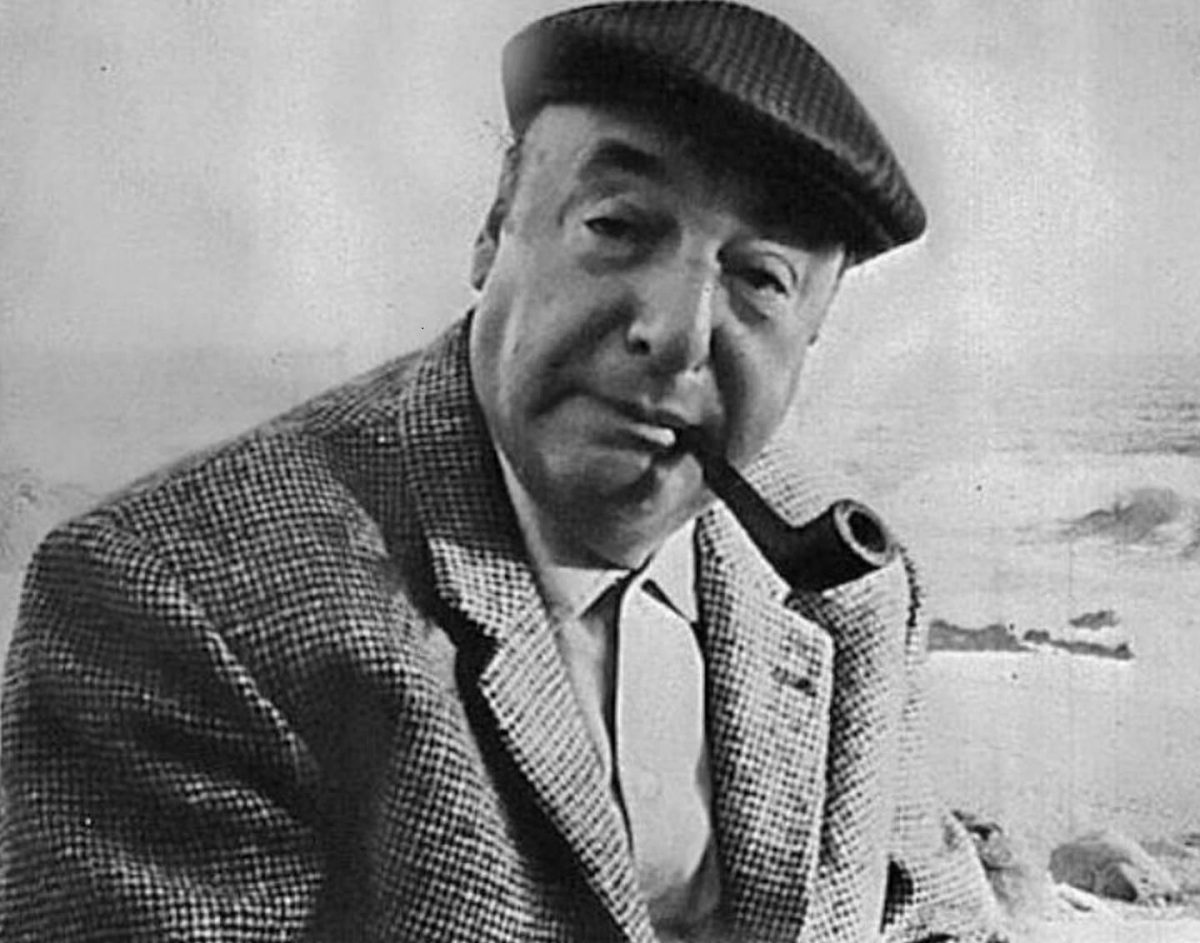Little
rose,
roselet,
at times,
tiny and naked,
it seems
as though you would fit
in one of my hands,
as though I’ll clasp you like this
and carry you to my mouth,
but
suddenly
my feet touch your feet and my mouth your lips:
you have grown,
your shoulders rise like two hills,
your breasts wander over my breast,
my arm scarcely manages to encircle the thin
new-moon line of your waist:
in love you loosened yourself like sea water:
I can scarcely measure the sky’s most spacious eyes
and I lean down to your mouth to kiss the earth.
Pablo Neruda
Pablo Neruda (1904 – 1973) was one of Latin America’s greatest literary figures, who made an impact on the world with his love poetry as well as his political verse. He is highly acclaimed as a prolific and intense poet and is well known as a communist.
He was born in Chile as Ricardo Eliécer Neftalí Reyes Basoalto (but adopted the pseudonym Pablo Neruda and then made it his legal name in 1946. He served the nation of Chile very well, holding many diplomatic posts, travelling to represent his country and serving as a senator for the socialist party. His politics did bring him into conflict with the government at times, forcing him to escape into exile at one period (1948 – 1953), and to have to confront Augusto Pinochet at another. He was a very close ally and advisor to Marxist President Salvador Allende, who appointed him ambassador to France in 1970.
Neruda won the Nobel Prize for Literature in 1971, which indicated recognition of his value as an artist in spite of some resistance to his socialism. He was championed by a number of great writers. Colombian novelist Gabriel Garcia Marquez described him as “the greatest poet of the Twentieth Century in any language”. Other admirers included Spanish playwright Frederico Garcia Lorca and American playwright Arthur Miller, who organised his involvement in an important conference in the USA. Neruda had been banned from the USA since the anti-communist McCarthy era, but Miller applied to President Lyndon Johnson and got the ban lifted so he could get a visa.
Neruda was a precocious talent who started out as a writer at 13 and throughout his schooling up to 16, had his work published in newspapers. He was just 20 when one of his most celebrated works came out – Twenty Love Poems and One Desolate Song. Another outstanding collection is Residence On Earth.
Among Neruda’s admirers was Guyana’s greatest poet Martin Carter. During the 1950s, Carter was an editor of Thunder, the theoretical organ of the PPP, in which may be found most of his important prose writings. Thunder paid consistent attention to the arts, publishing many poems (including verses by Sidney King, now Eusi Kwayana) and film reviews.
Here is one of the editorials written by Carter, Thunder, Vol 5, No 42, January 15, 1955, introducing a poem by Neruda. It is also included in the collection of Carter Prose edited by Nigel Westmaas in Kyk-Over-Al, 44 and 49/50.
Pablo Neruda
“On the back page of this issue is a poem by Pablo Neruda (I Want the Earth). Pablo Neruda is one of the greatest living poets in the world. He is Chilean and his poems are originally written in Spanish. The version printed here is therefore a translation.
Two years ago Pablo was awarded a Stalin Prize for outstanding work in the cause of the maintenance of world peace. The award of such a prize is a tribute to Neruda’s poetic power, a tribute to his unflinching stand in defence of human culture and civilisation. It is also a tribute to the Chilean people without whom there could be no Pablo Neruda.
In his early life the poet travelled widely in the world for he worked in the diplomatic service of Chile. He served from time to time in India and other Eastern and European countries. At the time he was still dominated by the anxieties of decaying bourgeois society and his poetry was permeated by death wishes and full of all the obscurantism now so fashionable in certain literary circles in Europe and America.
It was during his period of service in Spain that he really came alive. The Spanish Civil War opened his eyes to the truth. The inhuman activities of the Fascists assisted by Hitler and Mussolini revolted him. He saw how ordinary men and women could become heroes in the fight for liberty, how down there in the thoroughfares of reality history was being made. And from then on he heard the marching sounds of men going forward to the dawn.
Back in Chile, Neruda joined forces with the liberation movement of the people and was elected by the tin miners to represent them in the national assembly. But this did not last too long. Soon the police were at him like a pack of mad dogs and he was forced to flee as he himself has written, “through the tall night, through all our life”.
Having escaped from the hands of the butchers who ruled Chile at that time, Neruda went from country to country, attending conferences, reading his poems in the world, and inspiring men with hope and courage. Today Neruda is back in Chile, or back at home once again doing his job of a poet, which is to stand proudly on the side of truth and hope in a world full of ugliness and tumult and struggle.
Thunder is proud to print a poem by such a man and poet.”
(Martin Carter, 1955).






